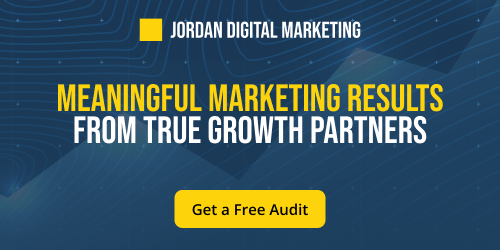Third-Party Endorsements in Google Ads: What That Future Might Hold
The landscape of SEO and link-building is always changing, and building high-quality links has taken a back seat in recent months to Helpful Content and generative AI in the SEO world.
That said, links are still important for establishing E-E-A-T (experience, expertise, authoritativeness, and trustworthiness), which is a philosophy whose framework influences how you rank organically.
Simply put, credible links back to your content – particularly rich, valuable content – will help your organic traffic. Digital PR, by which I mean targeted campaigns meant to gain more external links, is an important initiative for climbing the ranks and grabbing market share.
What Is Link-building?
Link-building is the process of acquiring links from other websites to your own. A link is a way for users to navigate between sites and pages online. Search engines use links to crawl the web; they will crawl the links between the individual pages on your website, and they will crawl the links between different websites.
In general, you want to get links that would drive high-quality traffic to your site and ultimately generate leads. These types of links match Google’s link criteria. It's for this reason that you'll want to employ quality link-building strategies, and not cheap or black hat strategies.
Internal links also provide an important ranking factor – but from within the authority Google has designated to the domain.
What Do Links Mean for Search Engines?
There are two fundamental ways in which search engines use links:
- To discover new web pages
- To help determine how well a page should rank in their results
Once search engines have crawled pages on the web, they can extract the content of those pages and add it to their indexes. In this way, they can decide if they feel a page is of sufficient quality to be ranked well for relevant keywords.
When they are deciding this, the search engines do not just look at the content of the page; they also look at the number of links pointing to that page from external websites and the quality of those external websites.
💡 Takeaway: the more high-quality websites that link to you, the more likely you are to rank well in search results.
How Can Link-building Benefit Business?
There are a few significant benefits of link-building. These include:
- Building relationships. Site and content owners impressed enough with your content to link to it on their owned media are potentially good allies in your professional network. (On that note, it’s always a good idea to thank someone for a link.)
- Sending referral traffic. Any clicks on external links to your content are an opportunity to convert new users. If you have content you know is getting you referral traffic, make sure you’re including a CTA for users who may be impressed with what they’re reading.
- Brand awareness and building. External sites have their own readership, and providing links to your content means they’re putting you in front of people outside your current circle of brand awareness.
Establish E-E-A-T with Link-building
Google is looking for factual content, produced by experts, and updated with accurate information. The E-E-A-T guideline spans across industries and content types as Google wants to rank only the best content in search results. This shows what Google considers “great content.”
The other algorithmic aspect is authoritative mentions (links). In general, a good way to tackle E-E-A-T in content is by answering questions to previously unanswered questions, creating useful tools, and building a reputation for owning the space by publishing content across the site regularly.
Leverage Strategic Outreach for Link-building
You may have a PR department or PR agency working to put your content in front of bigger and/or more authoritative platforms, which is great. This can take two forms:
- Earned placements or bylines, in which you craft valuable content that lives on another platform. In these situations, best practice is always to ask the editor of that platform to include a link back to your owned media – often, your company website or LinkedIn profile.
- Links to your owned media within external content, in which the external platform cites you as a reference in content that they produce and host.
Even if you don’t have a PR resource, you can bootstrap outreach using sites like HARO, Terkel, Qwoted, etc. If links and awareness are your goal, you can use your owned media – including LinkedIn, Quora, Reddit, Medium, and company/personal blogs – to publish POVs that may catch the eye of journalists and other experts in your field. And if you’d like to build your own outreach campaigns, you can follow experts like Gloria Chou to get insight on successful strategies.
Wrap-up
All of the above assumes that you have – or are building – a content engine that provides your readers with authenticity and value. With that in place, use link-building as another fundamental lever for SEO that truly moves the needle for your business.
Want to connect with a team of SEO experts to supercharge your Digital PR? Contact Jordan Digital Marketing!
Tags:

Apr 13, 2023 1:13:56 PM



-Feb-11-2026-08-48-31-8284-AM.png?width=500&height=500&name=Regular%20Blog%20Hero%20(1)-Feb-11-2026-08-48-31-8284-AM.png)

